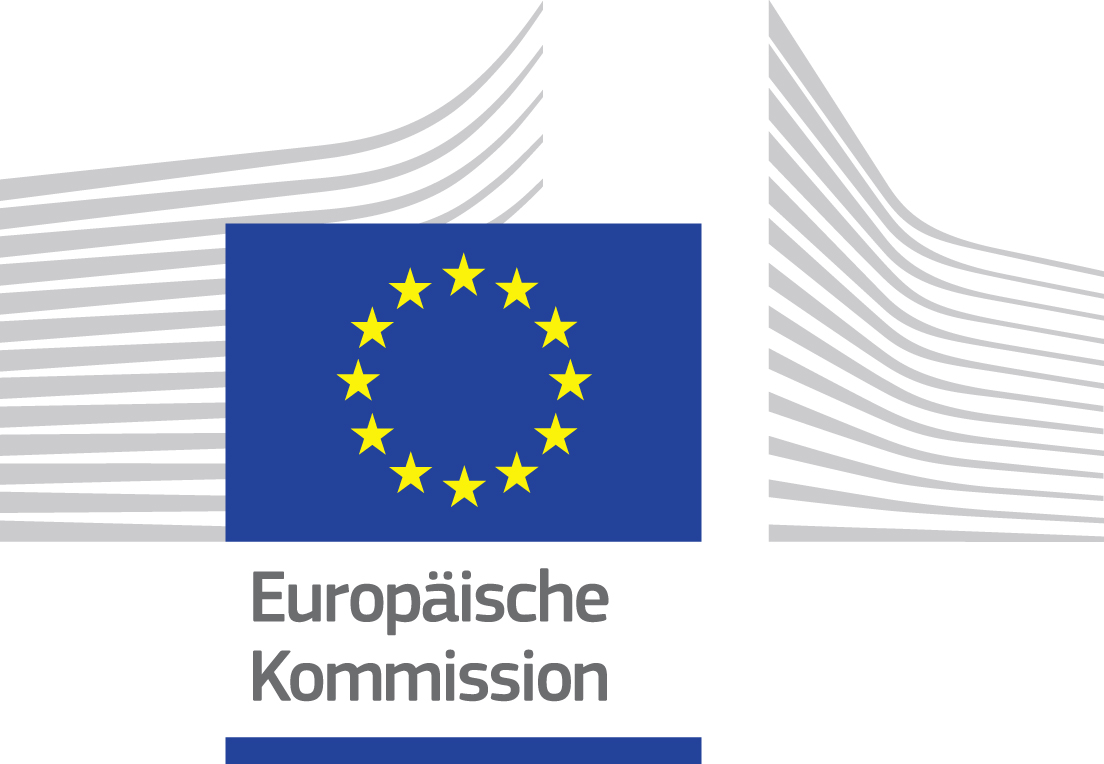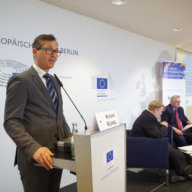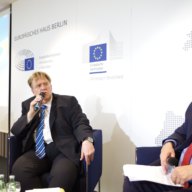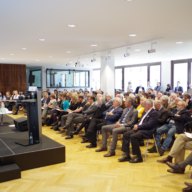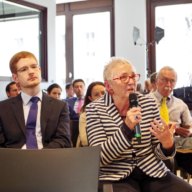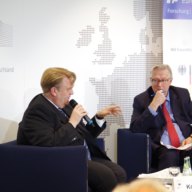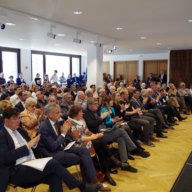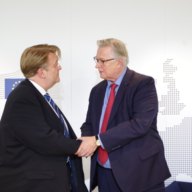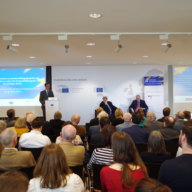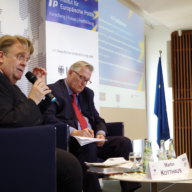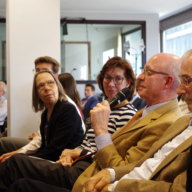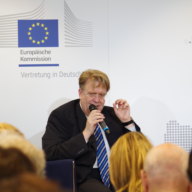Public Debate with Martin Kotthaus, Head of the European Directorate-General at the Federal Foreign Office
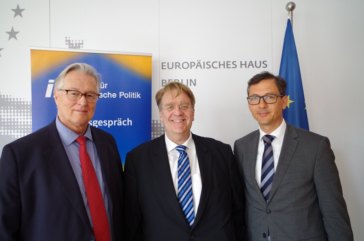
On 10 April 2018, our Public Debate with Martin Kotthaus, head of the European department of the German Federal Foreign Office, concerning the topic “The debate about the future of Europe: The route to the EP elections in 2019” took place in the European House in Berlin. Richard Kühnel, head of the representation of the European Commission in Germany, held a welcoming speech. The discussion was moderated by IEP director Prof. Dr. Mathias Jopp.
“New government, new luck”, also concerning Europe: This is how Richard Kühnel welcomed the approximately 200 guests who honored us with their presence in the European House in Berlin. The new government would tackle the European challenges “with zeal”, emphasized Kühnel. Especially the title of the coalition treaty “a new departure for Europe” could be understood as stressing the significance of the European dimension for the new parliamentary term and as sending out an optimistic message.
In his introduction, Prof. Dr. Mathias Jopp pointed to the numerous difficulties that the European Union would have to face over the next few years, among them the relationships with Russia and Turkey as well as the hazard of a trade war with the USA and the Brexit. In light of all these challenges for Europe, Martin Kotthaus admonished the audience to see the multiple accomplishments of the Union during the crises of the last years and to rather see the glass as half full than as half empty: There is economic growth all over the European Union, also in Greece, and unemployment rates are decreasing. The migratory pressure is also under control. The long period of stagnation of the European security and defense policy came to an end after the entry of almost all the member states of the EU to PESCO. A development that, Kotthaus stressed, would have been unimaginable a few years ago. Kotthaus also looked to the future optimistically: With Greece the last member state would be released from the support program this year. Additionally, the low interest rates within the Eurozone might not be good news for savers but borrowers and investors would profit from them. All these positive developments would be reason enough to not only focus on the pending problems but to acknowledge how Europe grew stronger in the wake of the crises since 2009. Contrary to those who predicted the downfall of the Union, the Brexit only made the solidarity among the member states stronger than before and increased the understanding of the significance of the Union for individual citizens. No other member state would embark upon the same path as the United Kingdom, conversely, the EU-27 would stick together like “fire and brimstone”, now more than ever. Kotthaus ascertained that the situation of the EU today was much better than predicted by many about four or five years ago. Nevertheless, the unity of the EU-27 would have to prove itself facing the multiple challenges ahead.
In the run-up to the parliamentary elections in 2019, it could be assumed that the capacity for action of the European parliament would be impaired from the upcoming autumn onwards, Kotthaus further elaborated. For that reason, answers to urgent questions should better be found before fall and together with all EU-27 member states. Kotthaus repeatedly dismissed the idea of a multi-speed Europe. Decisions should not be taken within a “small club” but all member states should be involved: “The collective development of the EU-27 has absolute priority.” Especially emotionally explosive topics such as the refugee crisis should be “shouldered together” so that the member states would not be divided. Another “urgent construction site” would be, according to Kotthaus, the completion of the European banking union, key element of the European economic and monetary union: “As we have stability and low interest rates now, the conditions needed to finally approach the completion of the banking union are fulfilled.”
Asked about the weakening of the Weimar triangle in recent years, Kotthaus underlined the importance of this forum which could have the potential to further strengthen the cooperation of the EU-27. Furthermore, it should be aimed at solving 80% of the open questions concerning the Brexit until fall. Kotthaus affirmed that the danger that further “exits” could follow the Brexit did not exist. Certainly, he conceded, EU-skepticism existed in many member states, also in Germany. The best way to deal with it, however, would be to make the EU even more successful than it already is. “The EU’s success makes its charm. Success will be copied.”
